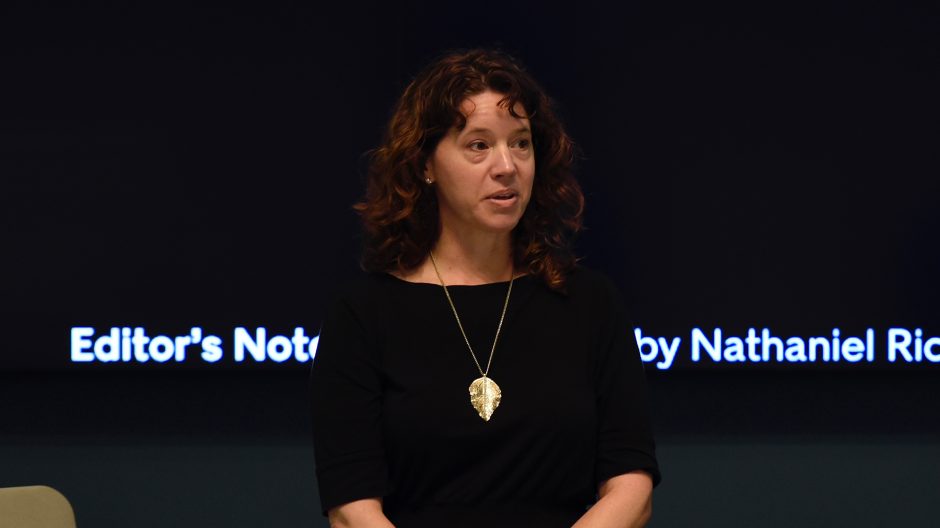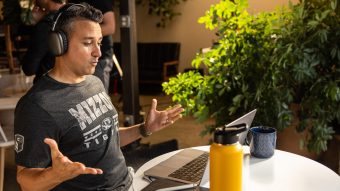
July 25, 2023
Sara Shipley Hiles has been telling the stories behind the world’s environmental challenges since the beginning of her career. Now, as an associate professor at the University of Missouri School of Journalism, she is supporting those stories on a larger scale than ever before.
As executive director of the Mississippi River Basin Ag and Water Desk, she oversees a program that provides in-depth environmental coverage to newsrooms around the country free of charge. The Desk is a collaborative network of reporters, expert advisors and participating newsrooms that seeks to fill the gaps in coverage of some of the planet’s most consequential issues involving climate and the natural world.
She is also the director of the Smith/Patterson Science Journalism Lecture Series, a partnership with the Pulitzer Center that brings working journalists to campus to speak with students about their on-the-job experiences. She oversees a companion program, the Smith/Patterson Science Journalism Fellowship, which gives one student each year the opportunity to report a story anywhere in the world with the help of a $5,000 stipend. And to further support students interested in science or health reporting, she is the faculty mentor for a student organization, Science, Health and Environmental Journalism @ Mizzou.
Then there is her role in the classroom itself, where this spring she taught a capstone course that brought students to New Orleans and Florida to investigate the fertilizer industry and its wide-ranging impacts.
“Sara’s efforts consistently prioritize the hands-on experience and positive impact of the Missouri Method,” said David Kurpius, dean of the School of Journalism. “Whether coaching her students on science-literate writing or supporting the news ecosystem with well-researched environmental coverage, she is a leader who is moving the school and the industry forward.”
Science in her blood
It’s no surprise that Hiles ended up in a science-related career. Her parents owned a clinical drug research facility, and she counts among her siblings a doctor, a pharmacist, a nurse and an engineer. But bridging that inherited passion for science with another passion — writing — offered her the opportunity to forge her own path.
“When I figured out you could be a journalist and get to learn about all of these things, then translate them into beautiful stories that help people appreciate the environment or understand some sort of injustice happening in the world, that was a turning point,” Hiles said.
Now, in the midst of teaching science reporting, overseeing the Ag and Water Desk and running the Smith/Patterson Lecture and Fellowship, Shipley Hiles said she hopes to create more opportunities for students and faculty at Mizzou.
“One dream I have is that all journalism students will have basic training in science literacy,” Hiles said. “No matter what beat you are on, you need to understand science-related issues. Everyone covered COVID-19, and everyone covers climate change.”
She said an increased emphasis on science communication training for journalists will help combat rising tides of misinformation online, where topics like vaccines, autism and even the climate are often subject to sensationalized stories and rumors that spread quickly.
“If you don’t know how to cover these stories, you can easily fall into traps,” Hiles added. “It’s important for journalists to understand how to avoid hyperbole while furnishing important information that is missing from the public conversation.”
That commitment to journalism as a public service hasn’t just helped her educate excellent student journalists and support the industry; earlier this year, she won the C. Brice Ratchford Memorial Fellowship, which honored her dedication to program-building, teaching and journalism.
Read more from the Missouri School of Journalism


